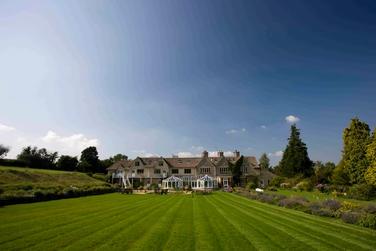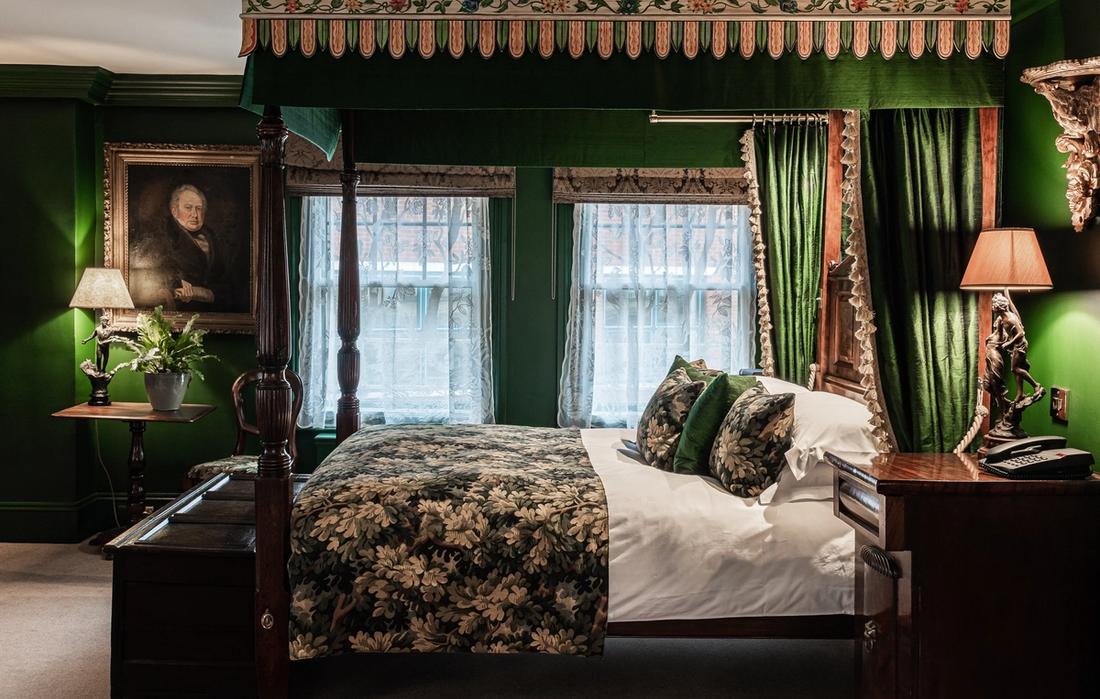The Good Hotel Guide is the leading independent guide to hotels in Great Britain & Ireland, and also covers parts of Continental Europe. The Guide was first published in 1978. It is written for the reader seeking impartial advice on finding a good place to stay. Hotels cannot buy their way into the Guide. The editors and inspectors do not accept free hospitality on their anonymous visits to hotels. All hotels in the Guide receive a free basic listing. A fee is charged for a full web entry.
The Good Hotel Guide
About Us
Independent
Recommended
Trusted
Independent
Recommended
Trusted

Elephant in the room
All blog posts
5 minutes
4 Jul 2017
Elephant in the room
All blog posts
5 minutes
4 Jul 2017
By Adam Raphael

The Good Hotel Guide is a guide for readers. Neither payment, nor hospitality, nor advertising are accepted for an entry in the print edition. But the Guide’s mission is also to promote outstanding hotels, inns, and B&Bs. Last month, we held our first GHG hotel forum at THE PEAR TREE AT PURTON, Wiltshire, attended by 25 hoteliers. The subjects ranged from staffing and high rates of VAT to the increasing grip of online travel agents with commission rates as high as 20%. You can read more about the day in BOUTIQUE HOTELIER.
Good stuff but sadly there was an elephant in the room. +At the recent general election, the promise was held out of a strong and stable government empowered to deliver a good post-Brexit trade deal for this country. As it turns out, we have a weak minority government, propped up by an uneasy confidence and supply arrangement with the Northern Irish Democratic Unionist Party, bribed with £1 billion of taxpayer’s money by a Prime Minister aptly described as ‘dead woman walking’.
None of this has the air of permanence; it may not last even a year. What is going to happen? Another Tory leadership election, another general election, an about-turn on Brexit, a second referendum, a Corbyn-led Labour Government? As that famous American baseball philosopher, Yogi Berra put it: ‘It’s tough to make predictions, especially about the future.’
There are, however some things which are more certain than others. The first is that there is no majority in the current Parliament in either the Commons or the Lords for a hard Brexit. Therefore, whoever is Prime minister, and whichever party is in power, a compromise is going to be needed. Tory grandees such as John Major and Michael Heseltine are talking up the need for the UK to continue to be a member of the European Economic Area. That would give us European trading rights and our own Agriculture and Fishing policies. But we would continue to have to observe free movement, and that would be unacceptable to hard-line Brexiteers.
The second known is that there is no way that any type of Brexit can be accomplished within the two-year framework set out by Article 50. There will be a lengthy transitional arrangement whatever is or is not agreed. One of the difficulties is that when you are negotiating with 27 different countries via the European Commission, it will be not a question of leaks, but an exercise conducted in a goldfish bowl. Nothing will be secret. That makes compromise very difficult.
The third known is the sharp fall in sterling, roughly 20% against the dollar and a bit less against the Euro. That should encourage an increase in domestic tourism—the staycation phenomena and a growth in foreign tourism. The figures so far are mixed, but I would be surprised if hotels didn’t get some benefit from sterling’s decline. But against that, there is an increase in inflation (now up to 2.9%), wages are stagnant, and living standards are being squeezed. Discretionary spending is under pressure, evidenced by the decline in retail sales. How far will that effect hospitality?
Many hotel guests, particularly the elderly, may not be directly in the firing line but an overall loss in consumer confidence is not good. The British economy is in a bad state. We are likely to be among the slowest growing economies in Europe this year. Not many of those who voted Yes in the referendum voted to become poorer. But unfortunately, that is going to be the result, at least in the short term. The Institute for Fiscal Studies estimates that the poorest eight million families will end up losing an average of nearly £500 a year for at least the next five years.
My fourth and final known is the damaging impact that even the prospect of Brexit is beginning to have on employment. The hospitality group, Corbyn and King, which runs the Ivy and other iconic restaurants in London, says it has already lost 15% of its workforce. Early this year, Pret a Manger, the upmarket sandwich chain, told a parliamentary committee that only one in every 50 of those seeking a job with it in London were British. The British Hospitality Association estimates that roughly a quarter of the hospitality sector’s workforce are EU nationals. Some of these are already beginning to stay away, partly because of the decline in sterling, partly because their own countries are recovering, and partly also perhaps because they no longer feel welcome. Last year, more than 60,000 EU nationals came to work in the hospitality industry. Replacing them in the short term will be hard. If sense prevails, there will be transitional arrangements for these crucially needed workers.
So much for things that are relatively clear. If I had to guess about the unknowns, I suspect that Mrs May will be forced to step down as Tory leader within 18 months. The Conservative Party is ruthless with those who fail to deliver power. Who will succeed her? Goodness only knows, but Boris Johnson will probably be difficult to beat. My second guess is that whoever is leading the party, Europhile or Eurosceptic will compromise on freedom of movement and the role of European Court of Justice, so as not to wreck the British economy.
My final guess is that the process of leaving the European Union will be so protracted that British voters may have second thoughts. Whether or not this is wishful thinking on my part, it is surely absurd that a narrow referendum result should bind the country for all time. One of the pleasures of democracy is that one is entitled to change one’s mind. Yes, I accept that we are stuck with Brexit for the time being, but it could well be that we will look back on this period as a moment of national madness.


